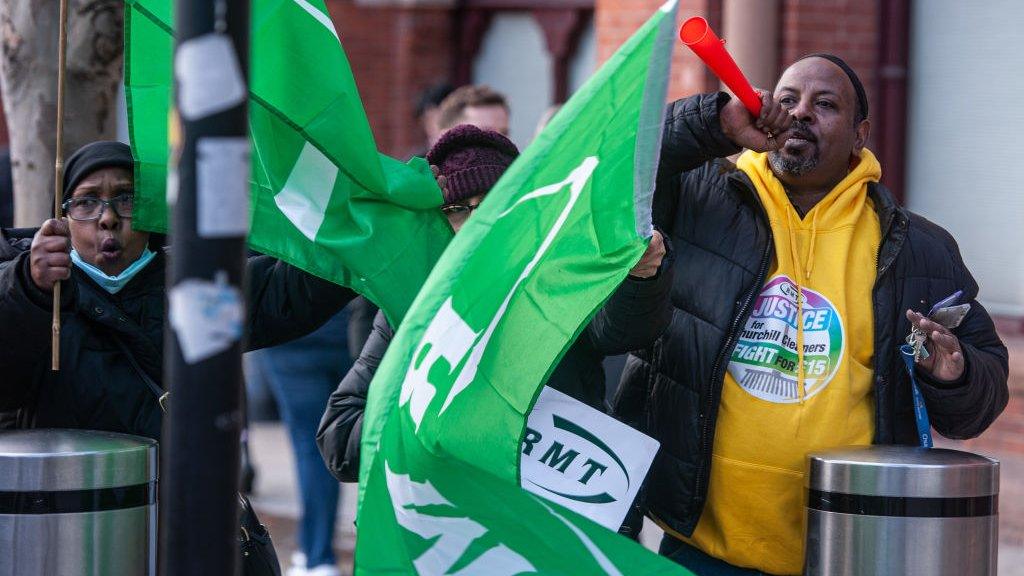Rail strikes: Passengers told not to travel by rail as disruption hits
- Published
Train, Tube and bus strikes: Information and advice on this week's industrial action
Football fans and festival goers are among those dealing with ongoing travel disruption on Saturday, as more than 45,000 rail workers take part in a further strike over pay and conditions.
Network Rail said only 20% of trains would run, with operators such as LNER and Cross Country affected.
It comes after UK-wide rail strikes on Thursday and walkouts on the London tube network on Friday.
The RMT union's Mick Lynch said more industrial action was "very likely".
Transport Secretary Grant Shapps urged Mr Lynch to put Network Rail's "fair 8% pay rise" offer to RMT members.
Writing in a letter posted on Twitter, external, Mr Shapps said: "People feel that this ongoing unnecessary strike action is a kick in the teeth to workers who cannot get to their own jobs now."
Speaking to BBC Breakfast, Mr Lynch rejected these claims, saying "only half the people in this dispute" would come under the offer.
He also branded the proposed figure "puny", claimed it would apply over three years, and said members were "not ready to accept it".
On future action, he added: "I'll be talking to senior executives in the industry all through next week trying to create solutions to these problems and then we'll decide whether we need to take more industrial action - but I've got to say that it's very likely given the gap between us at this time."
The union has also accused the government of blocking the train companies from offering its workers a better deal.
Which trains are still running?
Only about one in five trains are running on Saturday, with some areas having no services all day.
Lines are only open until 18:30 for the limited services that are running - on what is now the sixth day of national rail strikes this summer.
In London, a bus strike is continuing on from Friday, with routes being particularly affected in south-west London and parts of Surrey.
ScotRail said the dispute did not involve its staff, but there could be a knock-on effect in Scotland as there are just 11 routes open.
Because rail strikes often leave trains in the wrong part of the country at the start of the next working day, Sunday travellers have been warned to expect some disruption - although 85% of services are expected to run as normal.
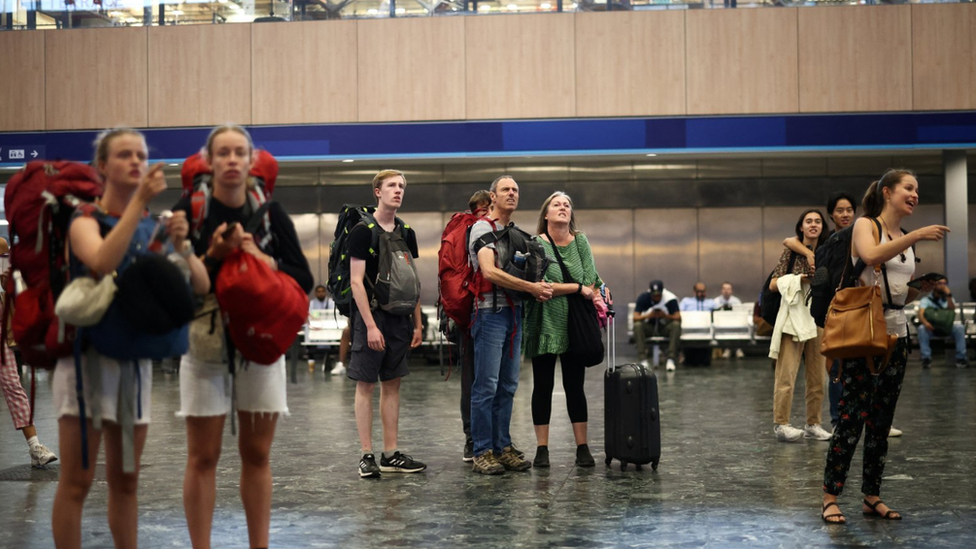
Travellers look at the departure board at Euston railway station in central London on Saturday
Which events are affected?
Music and football fans in particular have been advised to check whether they are still able to travel by train to concerts and sports fixtures - or whether they need to switch to travelling by car or coach.
The day's big music events attracting thousands of travelling fans include Becky Hill at Crystal Palace Park in London and the All Point's East festival in Victoria Park, London. Camp Bestival is taking place in Shropshire but it is thought that most of its 90,000 ticket-holders were already on site halfway through the four-day festival.
And of course every Saturday during the football season sees a mass migration of away fans.
Wolves fans have been travelling in their thousands to London for their match at Tottenham, while fans of some big Championship clubs such as Sunderland are having a second awayday this season disrupted by the strike action.

'I missed a football match'
Jonathan Winsky, from London, had bought train tickets to watch Watford FC play at Preston on Saturday afternoon, but he will now have to miss it.
He said: "As the strikes mean that the last train to Euston will depart five minutes before kick-off, I will now not be going to this match.
"I checked if there were any club coaches, but they had sold out.
"Last season, there were only two away matches I missed all season, Burnley and Wolves."
'I have to travel day early to see Coldplay'
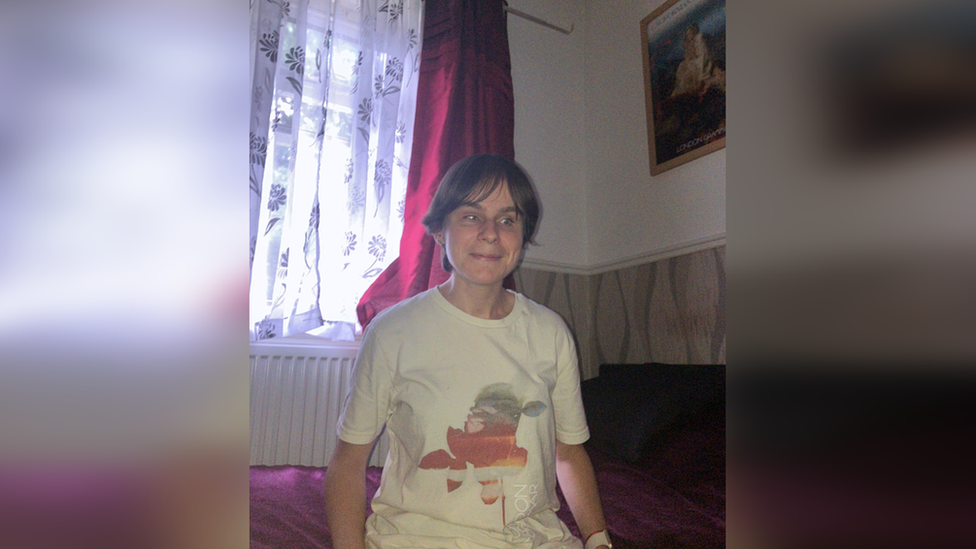
Kristiana Zunde said she has had to travel a day early to London after her train was cancelled
Student Kristiana Zunde, 23 and from Wakefield, West Yorkshire, says the strikes have forced her to travel a day early to make it to a Coldplay concert in London.
Her train booking for Sunday was cancelled due to disruption, so on Saturday she is catching a five-hour coach from Leeds to the capital. The journey lasts two hours longer than the train she was due to catch.
Ms Zunde, who is blind, told the BBC: "When I get the train, I much prefer it. I can book assistance in advance, they meet me in the train station and help me get on the right train.
"You can't do that with coaches. I'm having to ask my friends to trek to the coach stations and meet me, in Leeds and London Victoria.
"I do understand why the strikes are going on, I really do, but at the same time it is frustrating for people who can't drive and for people whose only option is getting the train."
'I spent hundreds on emergency hotels'

Flight attendant Thomas Goodearl, from Ely, Cambridgeshire, says he has spent hundreds of pounds on emergency hotels in the last few weeks because he has not been able to get home due to rail strikes.
He told the BBC: "I came back from Vancouver into London on Thursday and there was no train leaving King's Cross so I had to stay in a hotel on Thursday night. On Friday morning I had no tubes. So I managed to get one of the last two seats on a coach back to my village.
"Sadly, I've lost close to £300 to £400 in the past few weeks on emergency hotels.
"It's that, or sleeping on Heathrow Airport floor, which I am not doing."
The 37-year-old added that he sympathised with striking rail workers and blamed the train companies for not making a deal with unions sooner.

Why are the strikes still ongoing?
The unions, including RMT, TSSA and Unite union members, are in dispute with the government and rail companies as they say salaries should increase to reflect the rising cost of living.
Network Rail, says its latest offer is worth more than 5%, although this depends on whether workers accept "modernising reforms".
However, the RMT says this is a "paltry sum".
Mick Lynch, general secretary of RMT, told the BBC: "We can deal with evolution of the railway, but what we can't have is imposition of change and detrimental changes to our members lives that will make them not able to change their bills."
Dan Panes from the RDG also told the BBC the aim was to get "conversation rather than confrontation".
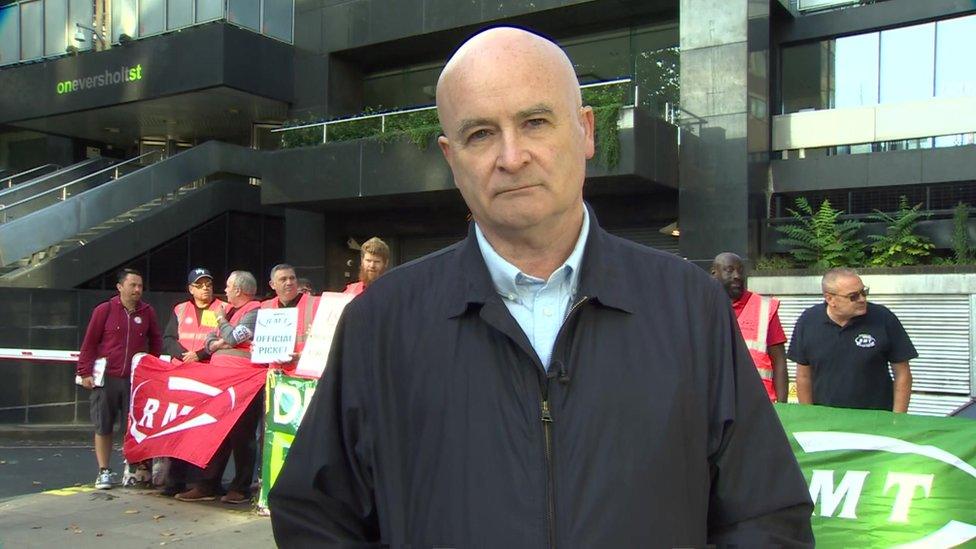
RMT general secretary Mick Lynch rejected suggestions striking rail workers would agree to the current offer on the table
What other strikes took place this week?
Staff at Network Rail took action on Thursday with rail strikes, while TfL said the Tube strikes on Friday resulted in usage of the underground being 90% down on the same day last week, with 98,345 entrances and exits on the London Underground network up until 10AM.
General secretary Mick Lynch apologised for disruption to the Tube, but claimed the union had been shut out of talks between the government, the Treasury, and Mayor Sadiq Khan's office.
Mr Lynch said: "They've got to get us around the table so we can talk about their issues, but at the minute there's been a big stalemate."
In response to Mr Lynch's claims, Mayor of London Sadiq Khan said he and the RMT union were "on the same side here, nobody wants the government to be attaching unreasonable conditions to our deal".
A spokesman for the Department for Transport accused union leaders are "opting to inflict misery" by disrupting travel.
Additional reporting Emma Pengelly and Sam Hancock
Related topics
- Published9 May 2024

- Published31 January 2023
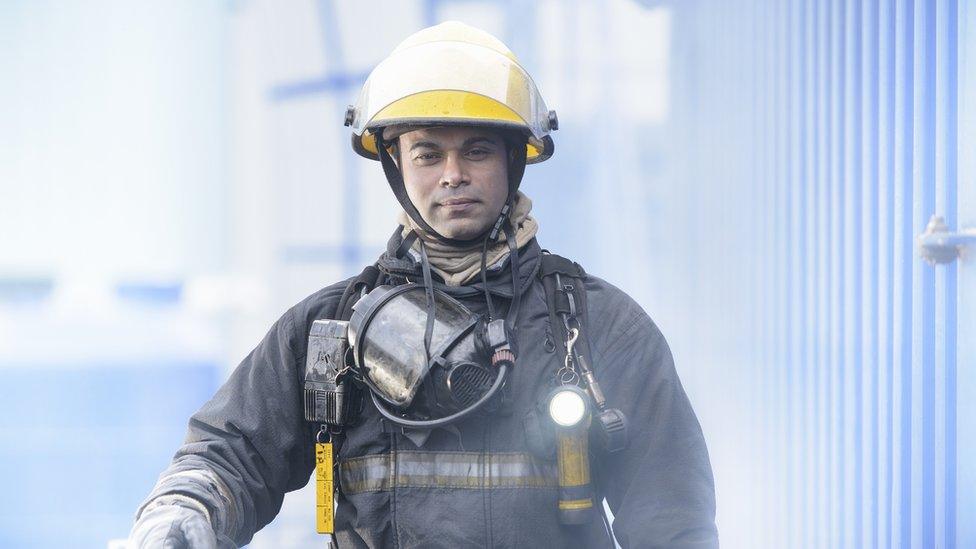
- Published4 August 2022
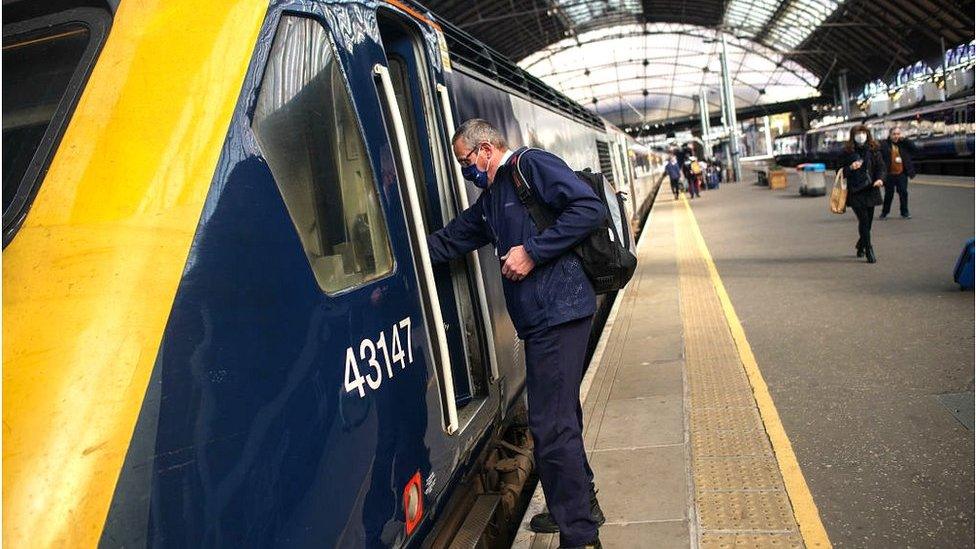
- Published7 December 2022
